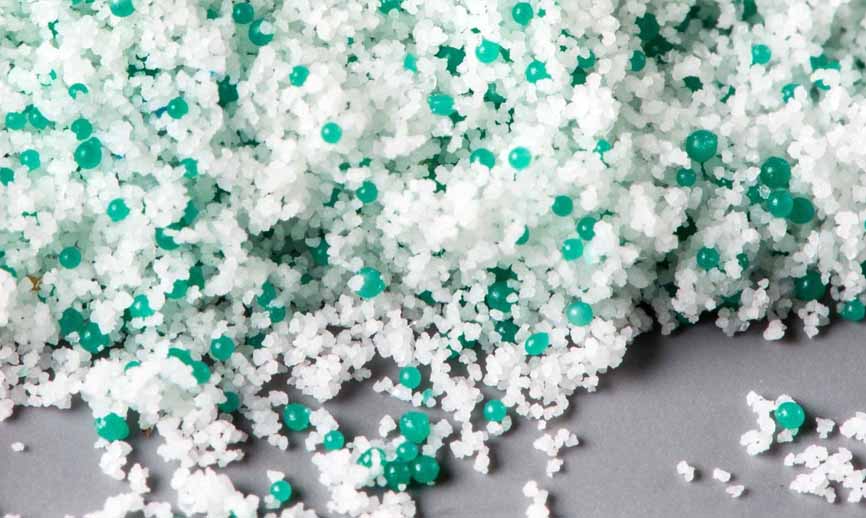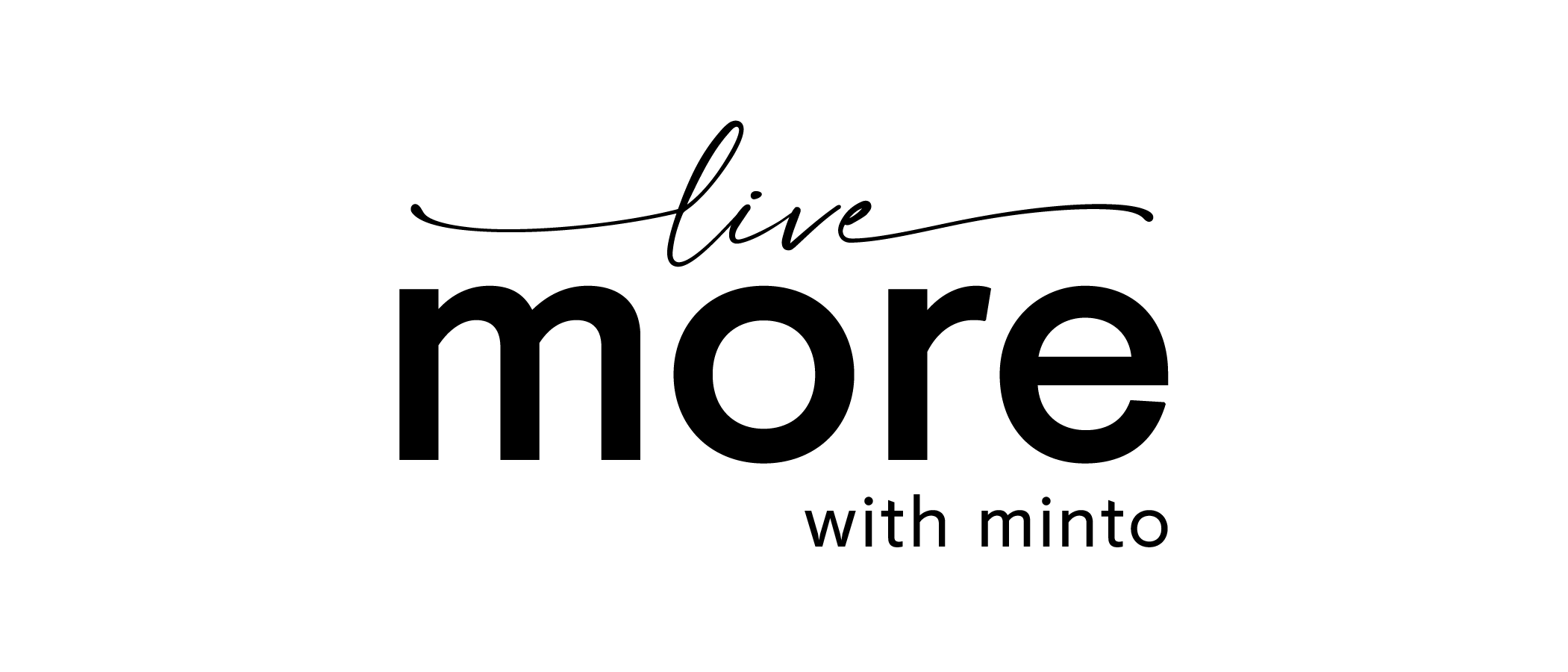
10 ways to be plastic free
For as long as we all can remember, plastic has been a big part of our lives.
From the toys we played with, to the straws we drank with, to the bags we carried our groceries in, we’ve grown up surrounded by this indelible material (and disposed of it without a second thought). Now as we deal with the consequences of overrun oceans and waterways, we can each do our part to limit its use and stop this epidemic in its tracks.
Here’s our list of 10 small swaps you can make to use less plastic right now:
1. Bring your own reusable bags
2. Invest in a reusable bottle
3. Say no to plastic straws and disposable cutlery
4. Pack leftovers in reusable containers
5. Skip plastic produce bags, sandwich bags and wrap
6. Shop at bulk stores with your own containers
7. Create a plastic-free pantry
8. Switch to a bamboo toothbrush
9. Avoid products with microbeads
10. Think before you buy
It's a plastic, plastic world

Image Credit: Water Docs
Before we get to each swap on our list, let’s put things into perspective. Plastic in our oceans traces all the way back to the 1960s when ocean equipment inadvertently scooped up litter off the coast of Ireland.
That means the people of our planet have had a disregard for the disposing of plastics for six decades. Today, researchers say the plastic problem is a lot worse than we thought – and surprisingly continues to worsen – as microplastics have quickly become “one of this generation’s key environmental challenges.”
Worldwide, 73% of beach litter is plastic: cigarette butts (the filters), bottles and caps, food wrappers, grocery bags, polystyrene containers. In 2016 the conservancy collected 9,200 tons of trash in 112 countries — around a thousandth of what enters the ocean each year. You get the picture. Let’s get started on making a change.
1. Bring a reusable bag

Image Credit: HelloWildflowerCo on Etsy
One of the easiest things you can do is carry a reusable bag with you and decline plastic grocery bags. They’re compact, durable, washable and often come in fun patterns and colours – and we found 25 other great reasons to use them. It’s standard practice to have them on hand nowadays, and while there will be times when you blank and forget your bags (you’re human!), most of us feel that undeniable tinge of guilt when we ask for a bag at the cash.
Here’s why. Plastic bags are largely not recyclable because they require a different collection system and processing equipment than other plastics. And they can take anywhere from 10 to 1,000 years to break down. Yikes! The great thing is many retailers offer paper bags as an option (not perfect, but better), or participate in a “take it back” program that accepts clean plastic bags to be reused. If we can’t eliminate them, let’s at least reuse them.
2. Invest in a reusable bottle

In our daily routines, staying hydrated is absolutely essential. But what isn’t necessary is grabbing a bottle of water (or Diet Coke or Gatorade) to quench our thirst.
Here’s a staggering stat: one million plastic bottles are bought around the world every minute – which breaks down to 20,000 a second. And in Ontario alone, one billion plastic bottles are sent to landfill every year. Sure, they’re recyclable. Yet only 14% are making it to recycling facilities in the province.
Need more proof? Check out some of these stats from Water Docs:
• Bottled water is almost 2,000 times for expensive to produce than tap water
• Plastic bottles can take up to 450 years or more to break down and decompose
• Tap water is strictly regulated by Health Canada – bottled water is not
• It takes three times the water to make the bottle as it does to fill it
• The amount of bottled water purchased each week in the U.S. alone could circle the globe five times
Using a reusable bottle is a small swap that can have an incredible impact. You can find literally every shape, colour and size to suit you (opt for glass or stainless steel) – and get your daily H20 the earth-friendly way.
3. Say no to plastic straws and disposable cutlery

Image Credit: CakraArdor on Etsy
As discussed in another post, we’re big fans of the No Straw movement and think this super easy switch out is one we can all get behind.
What is it? Simply put, rather than accepting a plastic straw in your drink, opt to carry your own metal, steel, glass, silicone or biodegradable one.
- Tip: When you order takeout to your apartment, request no straw or cutlery and use your own. The good news is, lots of businesses and restaurants are getting behind this movement, so it’s becoming easier than ever to make wise choices. And really, a straw is one of those things in life we can just live without.
Same thing goes for plastic cutlery. With so many options available from bamboo, to plant-based compostable, to foldable/travel, to your own cutlery from home, it’s easy to choose the alternative.
4. Pack leftovers in reusable containers

Image Credit: Eco Lunchbox
We all grew up with, and are guilty of owning, plastic containers to store food. Tupperware, anyone? And while we tend to use these things over and over again, eventually they crack or wear down and need to be tossed (and preferably recycled).
Our post about how to pack a zero waste lunch gives you all sorts of great tips, like using Mason jars to put away salads and soups, and there are great bento-style stainless steel containers and silicone options to store your favourite meals without relying on plastic to keep your meal fresh.
5. Skip plastic produce bags, sandwich bags and wrap

Image Credit: atelierscdivin on Etsy
When it comes to tidying up after dinner and putting leftovers away, we’ve become accustomed to reaching for Ziploc bags or Saran wrap. And because they’re used for food, they’re often tossed right in the trash when we’re done with them.
There’s no need to rely on these single-use plastics, with great alternatives like beeswax wraps, reusable snack bags and silicone seal caps that fit right over bowls. All of these things can also be used to freeze things, and they’re easy to store, too, since they’re totally collapsible.
6. Shop at bulk stores with your own containers

Image Credit: Now Toronto
Bulk stores like Bulk Barn are encouraging shoppers bring in their own jars to fill up in lieu of plastic bags as part of their Reusable Container Program. They simply weigh the container first, then figure out the weight of the product. You'll save money and produce less plastic and paper waste - brilliant!
7. Create a plastic-free pantry

Image Credit: Under a Tin Roof
Speaking of shopping in bulk with reusable containers, take a good look at the items in your pantry – bags of flour and sugar, plastic containers of corn starch and nuts, plastic bags of cereal and beans – and think about how easy it would be to pour them into glass, sealable jars like Mason jars.
Not only is it eco-friendlier, it’s easier to see what needs re-filling at the bulk store – and it looks great, too. Even better, zero waste grocery stores are popping up all over, making it easier than ever to choose sustainable products for your pantry that help reduce waste in the food supply chain.
8. Switch to a bamboo toothbrush

Image Credit: SOOPbags on Etsy
Consider this: there are approximately 4.7 billion plastic toothbrushes produced every year – and most people replace them roughly every three months. Where do they end up? In the trash, of course, and eventually our waterways and oceans.
Should you switch? The answer is a resounding yes! Bamboo toothbrush handles can be composted (over 6 months compared to hundreds of years for plastic) and the bristles recycled, providing an earth-friendly option for oral hygiene. It’s one of the easiest things you can do to immediately reduce the plastic waste created in your household.
9. Avoid products with microbeads

Image Credit: Our Seas Our Future
Microbeads are the tiny bits of plastic you find in cosmetics and toiletries like face scrubs and toothpaste that are seemingly harmless but, in fact, are damaging to the environment.
Think about it. Once you brush your teeth or wash with these products, they go down the drain and into the water system. And when you consider a typical exfoliating shower gel might contain as much microbead form as you’d find in a plastic container, it’s easy to understand why some countries have banned the production and sale of products with microbeads altogether. For a complete list of worst offenders and products to avoid, have a look at Beat the Microbead.
Here are a few alternatives to plastic microbeads from Elle:
1. Crushed walnut shells
2. Seeds, crushed or full
3. Baking soda
4. Coffee grounds
5. Shredded loofah
6. Sugar
7. Sea salt
8. Oatmeal
9. Corn kernel meal
10. Bamboo extract
11. Pumice
The above ingredients can be used as alternatives to exfoliate your skin – and also help when you’re searching for face washes, soaps, toothpastes, and other items if you wish to avoid buying with plastic microbeads in them.
10. Think before you buy

The most important thing you can do is stop and take a moment to think about what you’re buying and using.
- Is there an alternative to your single-use plastic purchase?
- Can you live without it?
- And most importantly, can it be recycled, reused or repurposed?
We can all do our part
Just recently Greenpeace activists in Canada, the U.S., Switzerland and several other countries made an enormous statement by unveiling “plastic monsters” covered with branded plastic packaging at Nestlé offices and consumer hubs to prove a point – we’re simply using too much single-use plastic to keep our planet sustainable.
Look around you right now. Chances are you can spot at least five things that are made of single-use plastic nearby. While we may not be able to live life completely plastic-free, we can do our best each and every day to choose avoidable plastic waste that can help lessen the load of our landfills, protect our oceans and hopefully, over time, make our world a better, greener place to be.

